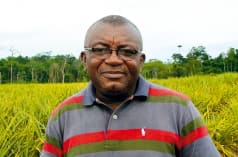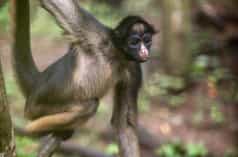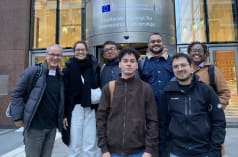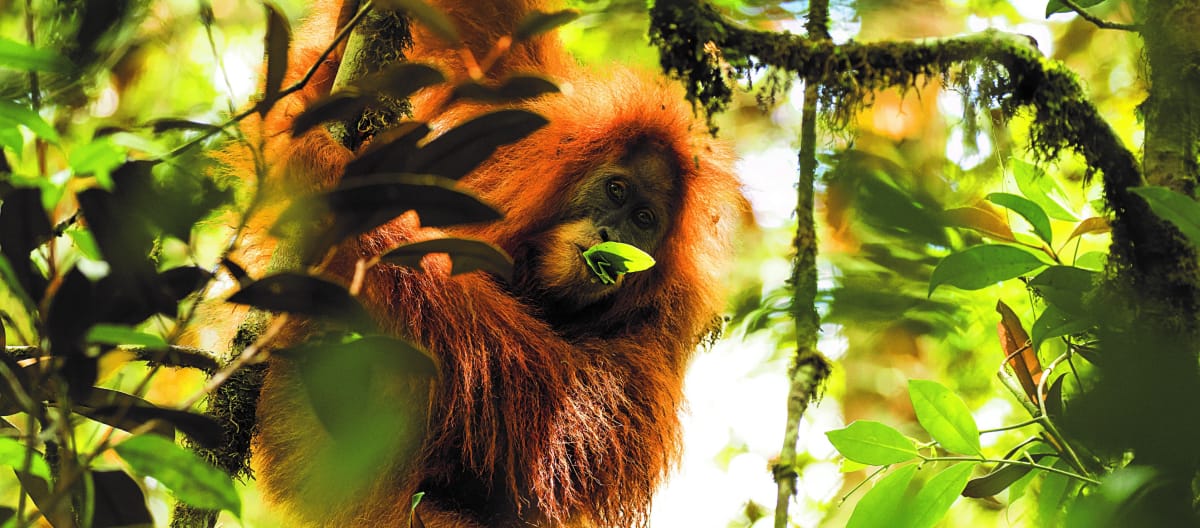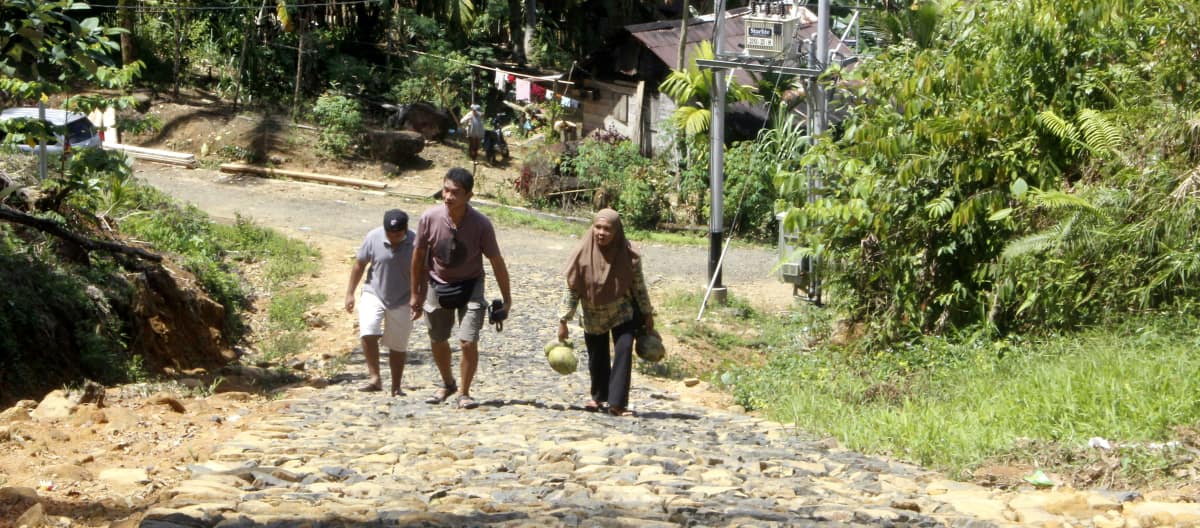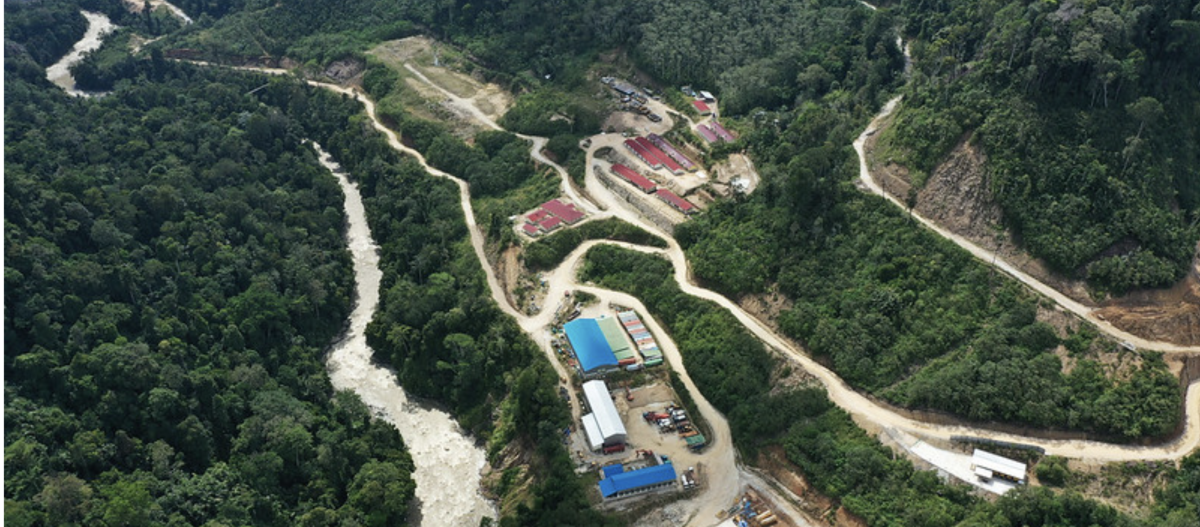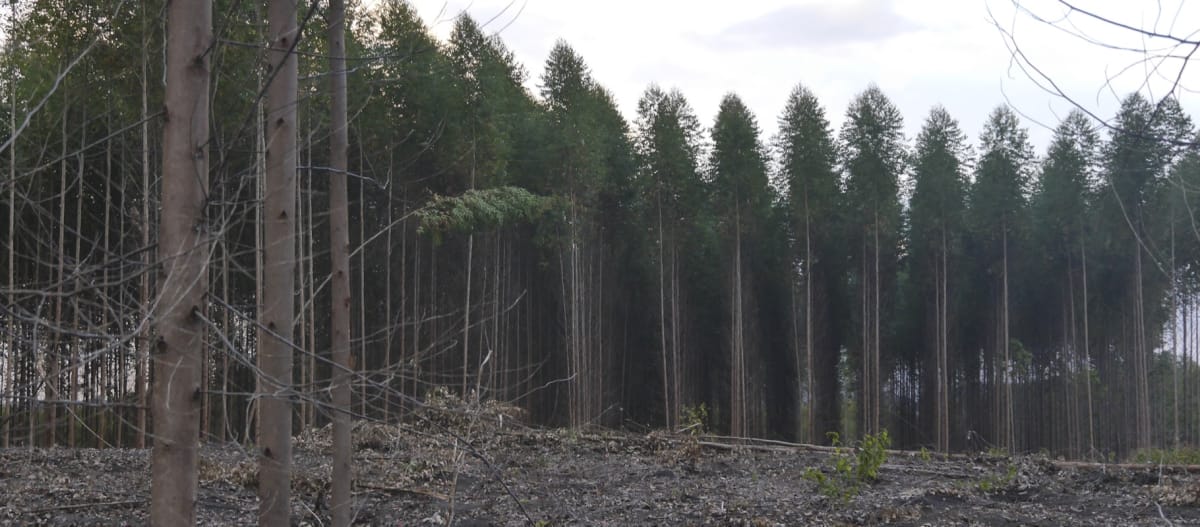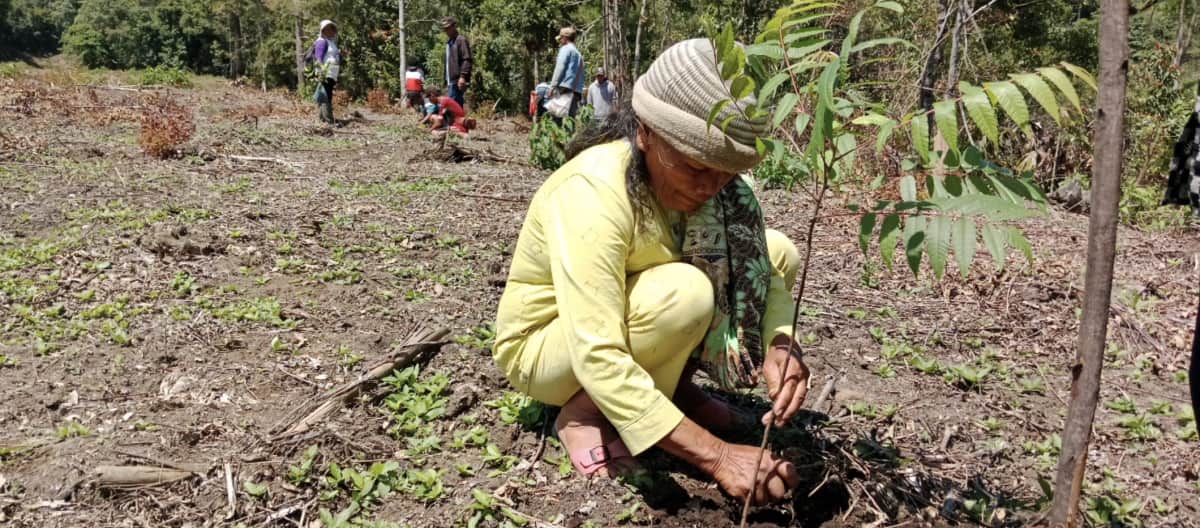Protecting the Tapanuli orangutan forest
In the ancient forest of the Tapanuli orangutans and at Lake Toba in Sumatra, two villages have successfully asserted their forest rights thanks to the backing of our partner, the AMAN Tano Batak Indigenous Alliance. They are now protecting the rainforest and reforesting degraded areas.
Project Overview
Project FocusEcosystems
Project Objective protecting the Indigenous forest of Batang Toru, reforesting plantation areas in northern Sumatra
Activities forest protection, reforestation, strengthening Indigenous communities, forest use
Indigenous people are the best guardians of the rainforest – as two communities in northern Sumatra are proving. With support from Rainforest Rescue and our partner, the Alliance of Indigenous People in the Land of Batak (AMAN Tano Batak), both have obtained forest rights – and are now bringing them to life.
The two villages could not be more different: The first community, Dolok Nauli, is located in Batang Toru Forest, the last refuge of the critically endangered Tapanuli orangutan; the second, Simenakhenak, is on the former concession of Toba Pulp Lestari, a pulp and viscose company on Lake Toba.
Tapanuli orangutans in the Batang Toru forest
With their long, wavy hair, the local orangutans look quite different from their relatives, the Sumatran and Bornean orangutans. It wasn’t until November 2017 that scientists discovered that this great ape is a separate species and named it the Tapanuli orangutan (Pongo tapanuliensis). The last of their kind, an estimated 800 individuals, live only in the Batang Toru forest south of Lake Toba.
Pongo tapanuliensis is the rarest orangutan species and is critically endangered.
The swamp, cloud, rain and mountain forests of Batang Toru provide a perfect home for the Tapanuli orangutan, but the forest is under threat: A power plant is being built on the southern course of the river that divides the forest into two blocks. A reservoir is planned, which will fragment their habitat even further.
A map of Batang Toru
Sign and share our petition to save the Tapanuli orangutan
Our petition helped stop the construction of the dam. But that is is not the only threat: To the south of the forest is the Martabe gold mine, and to the north the government wants to establish industrial agriculture (“food estates”). To protect the orangutans, their rainforest must be preserved, and this can only be done with the help of the Indigenous people and the guarantee of their forest rights.
Protecting the Indigenous forest of Dolok Nauli village in Batang Toru
Studies around the world show that rainforests are best protected where Indigenous people live in harmony with nature and use it wisely, like the Indigenous Aek Godang Tornauli in Dolok Nauli village in the north of Batang Toru Forest.
“Those who disturb the Tapanuli orangutans will meet with disaster,” say the people of Batang Toru.
The Aek Godang Tornauli are one of the few officially recognized Indigenous communities. Rainforest Rescue and AMAN Tano Batak have helped the community obtain forest rights (Hutan Adat) over more than 500 hectares of forest. This means that they are the owners of the forest – previously the forest was state property by default.
This is a major achievement and the first step toward preserving this intact forest ecosystem according to the rules of their traditional ecological knowledge.
The goal of the project:
To preserve the Hutan Adat and Batang Toru Forest for the people and the Tapanuli orangutans. The project will become a model for other villages.
What is being done now:
- Establishing protection and use zones
- Strengthening Indigenous ecological knowledge
- Training and education on biodiversity, orangutans, and the use of forest products
- Developing ecotourism
Reforestation around the village of Simenakhenak, which was destroyed by the pulp company
The situation in the village of Simenakhenak on Lake Toba is very different. It is home to the Toba-Batak people. After a long struggle, the community now has the forest rights to 252 hectares of Hutan Adat. However, the once dense and beautiful forest is now partly overgrown with alang-alang grass and a eucalyptus plantation owned by Toba Pulp Lestari, a pulp company.
Toba Pulp Lestari has grabbed the ancestral land of many communities, destroyed large areas of old-growth forest, and contaminated the air, water and soil. The company is affiliated with the pulp company Asia Pacific Resources International Limited (APRIL) and the global holding company Royal Golden Eagle (RGE). Our petition, “Stop APRIL, Indonesia’s ruthless paper and pulp giant”, targets investors and buyers, as they are partly responsible for the deforestation of Sumatra’s rainforests.
Now the people are reforesting the area so that a Tombak Raja, a royal forest, can grow again. A royal forest provides clean water, is an important source of income and provides the people with fruit, honey, forest products and benzoin resin (incense from the Sumatran benzoin tree; Styrax benzoin), which is only found here.
The goal of the project:
To reconcile ecology and the local economy so that a new forest can grow and the village can thrive for future generations.
What is being done now:
- Operating a tree nursery and planting with jungle seedlings and coffee
- Establishing protection and use zones
- Restoring degraded areas
- Training in biodiversity and forest use
- Generating income with coffee
Further information
Report by Hengky Manalu, Project Coordinator AMAN Tano Batak (October 2024) New forest on old land. The village of Simenakhenak
